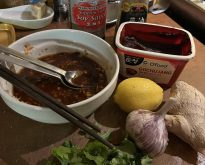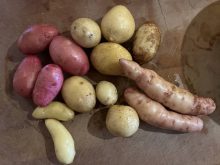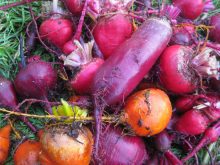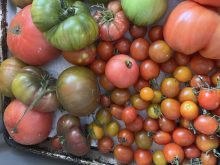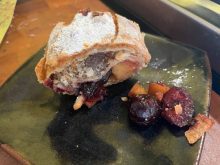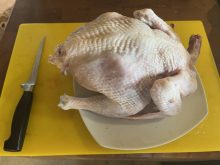In some parts of the world, the new year is celebrated at the spring equinox. This makes perfect sense. At the equinox, the days get longer, the sun gets warmer and things start to grow again. Spring is nature’s new year. OK, OK, it’s still half winter here, but a New Year’s celebration would pick up our spirits, if not melt the snow.
In centuries gone by, agrarian cultures of Europe celebrated the spring equinox because it was so important to the farming cycle. These spring celebrations often included eggs, sometimes painted red like the rising sun, a symbol of fertility and rebirth. The old Saxon goddess of fertility and spring was Eostre, etymologically related to the old words for east and dawn. Her companion was a rabbit who, once a year at the spring equinox, was miraculously able to lay eggs. Sounds familiar, though I am glad the rabbit now brings eggs of chocolate and marshmallow sponge.
Read Also

Maintain motion to ease joint stiffness
As we proceed into colder, drier temperatures, it’s common to hear reports of more joint stiffness and pain, athletic therapist Kathlyn Hossack writes.
In my family, we celebrate Easter with a friendly egg game called schpocking. I don’t know where this name originates (perhaps my great-great-great-grandfather made it up) but the game itself is ancient. Here’s how it goes:
Everyone picks a coloured hard-boiled Easter egg. We pair off in twos. Then we tap our eggs together, little end to little end, and big end to big end, squaring off against each other until just one egg is left unbroken. We have a little trophy in the shape of a bunny that the winner keeps for the year.
This game of cracking hard-boiled eggs together is very old in some parts of the world, much older than Easter itself, so how did it get to my dinner table? Growing up, I asked all my friends if they schpocked at Easter. No. As an adult, I asked my German friends (as my ancestors were German). No. I asked a Greek friend who did know the egg-cracking game, but this did not solve the mystery as my family originates nowhere near Greece.
Then, two years ago, I was in Ukraine at Easter time, that part of Ukraine along the Black Sea where Russian roots are strong. My ancestors, though German, lived in the Russian part of Ukraine before immigrating to Canada in 1891. The hotel served a special Easter breakfast that included potato salad (potato, carrots and peas), slices of ham and a red hard-boiled egg. The kids at the next table were schpocking!
The other thing I can tell you about this part of Ukraine is that, more than 2,500 years ago, it was colonized by Greece. Former Greek colonies, now in ruins, dot the Black Sea coastline of Romania, Russia and Ukraine. Aha, the picture began to coalesce. The egg-cracking game was not a German tradition but a Russian tradition, and well before that, a tradition of the Eastern Orthodox Church. I am, of course, open to further information and interpretation if any readers of this column have their own experience with this odd and ancient game.
As for the egg, it’s no surprise it was associated with spring in ancient and Christian times, since the hens start laying again when the days get warmer and the sun comes back. So here’s a simple old-timey recipe to celebrate the early days of spring.
Creamed Eggs
- 2 tbsp. butter
- 1 tbsp. cream
- 4 eggs
- Sprinkle of chopped parsley
- Salt and pepper
Melt butter in a frying pan on medium-low heat. In a bowl, scramble eggs lightly and season with salt and pepper. Pour into the pan. Cook eggs slowly, lifting and stirring until they are just cooked but still moist. Remove from heat. Stir in cream. Tip the eggs into a serving dish. Sprinkle with parsley. Serve with buttered bread or toast.



